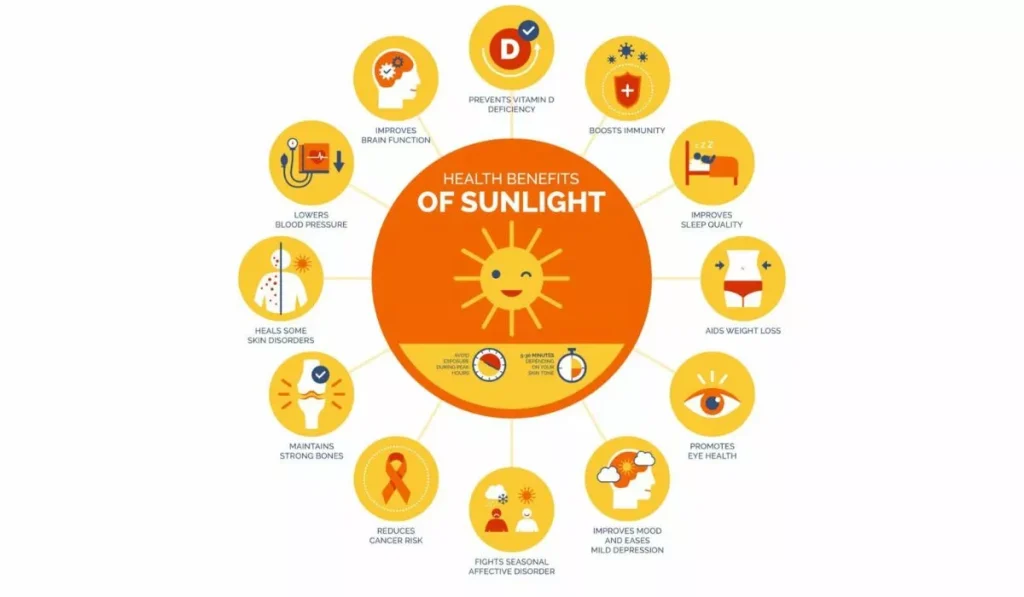In our pursuit of healthy, radiant skin, we often place great emphasis on external factors like skincare products and routines. While these elements are undeniably significant, we must not underestimate the profound influence that our nutrition can exert on the health and appearance of our skin.
Vitamin D is a key player in the world of skin health. It takes center stage in this discussion. This blog will help you understand how vitamin D benefits your skin.
The Sunshine Vitamin
Vitamin D is fat-soluble and is lovingly called the “sunshine vitamin”. It is naturally synthesized by your skin when exposed to sunlight. It is important to maintain skin health and keep you free from other problems.

1. Skin Protection
Vitamin D acts as a natural shield, safeguarding your skin against a myriad of environmental stressors. It plays a key role in countering free radicals and thwarting oxidative stress, a primary culprit behind premature skin aging. By fortifying your skin’s defensive mechanisms, this vitamin contributes to the maintenance of a youthful and healthy complexion.
2. Skin Repair and Regeneration
Vitamin D is like a nurturing friend to your skin. It actively supports the growth, repair, and intricate metabolic dance of your skin cells. Think of it as the conductor of a symphony, ensuring that your skin orchestra plays harmoniously.
One of its standout performances is the creation of fresh skin cells, a process that’s indispensable for your skin’s recovery from wounds, fading of scars, and the overall picture of skin health. When your skin receives its fair share of vitamin D, it’s as if it’s equipped with a superhero’s ability to bounce back from damage caused by formidable foes like UV radiation and those pesky environmental pollutants. In a way, vitamin D is your skin’s trusty sidekick, always there to help it in the face of adversity.
3. Managing Inflammatory Skin Conditions
Vitamin D has anti-inflammatory properties. These help protect you from common skin problems including acne, psoriasis, and eczema. This will help regulate the inflammatory problem in your diet. The mitigating redness and discomfort associated with these conditions can also be healed. Some studies even suggest that vitamin D supplementation can yield improvements in the management of these skin conditions.
4. Sun Damage Protection
While excessive sun exposure can harm your skin, moderate and sensible sun exposure is indispensable for your body to naturally synthesize vitamin D. This vitamin serves as an in-built safeguard, shielding your skin from the detrimental effects of UV radiation, including sunburn and skin cancer. It functions like an internal sunscreen, preserving your skin from the inside out.
5. Moisturization and Hydration
Vitamin D actively contributes to the functionality of your skin’s natural barrier, an essential component in retaining moisture. An efficiently functioning skin barrier is paramount for upholding hydrated and supple skin. Conversely, a compromised skin barrier can result in dryness, flakiness, and an elevated susceptibility to skin issues.
How To Attain Your Vitamin D
There are two methods to make sure that your vitamin D requirements for optimal skin health are met.
- Sunlight: One of the most natural methods to get this vitamin is by spending some time outdoors. This is especially beneficial in the morning sun. Sit for at least 10-30 minutes several times a week. Keep your skin type and location in mind.
- Diet and Supplements: You can also obtain it from your dietary choices. Fatty fish, egg yolks, and dairy products are important. You can also use vitamin D supplements to meet your daily requirements.
Other Essential Vitamins For Your Diet
In addition to vitamin D, there exists a constellation of other indispensable vitamins, each playing pivotal roles in preserving overall health and well-being. These vitamins are considered essential due to our body’s inability to produce them in adequate quantities, necessitating their intake through our diet and, at times, supplements.
- Vitamin A
- Vitamin C
- Vitamin E
- Vitamin K
- Vitamin B Complex
- Vitamin Folate (B9)
Conclusion
Make your diet healthy and balanced. This will ensure that no matter what health issues you are facing, they can be easily tackled. Remember, the key to a good lifestyle is 70% diet and 30% exercise. So, don’t take the importance of vitamins lightly in your life. They will save you from innumerable problems in the long run.

